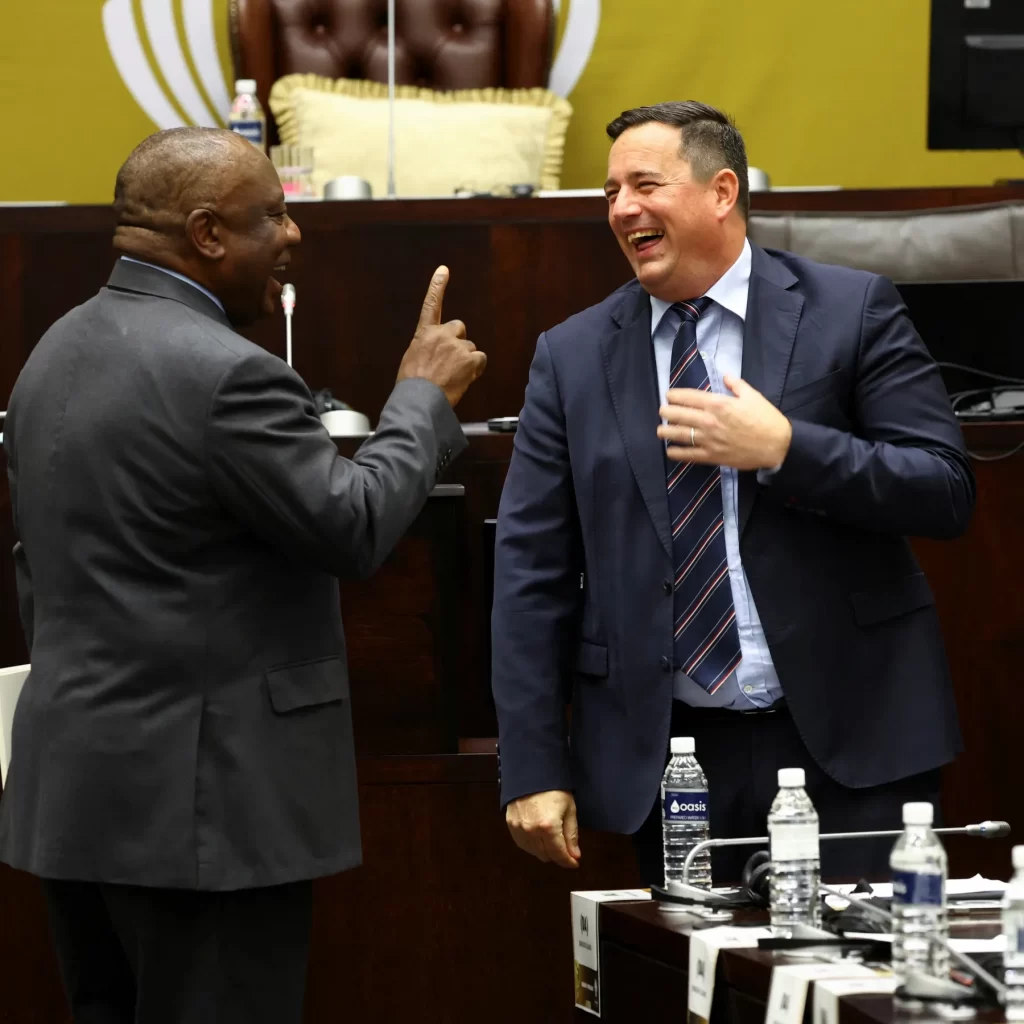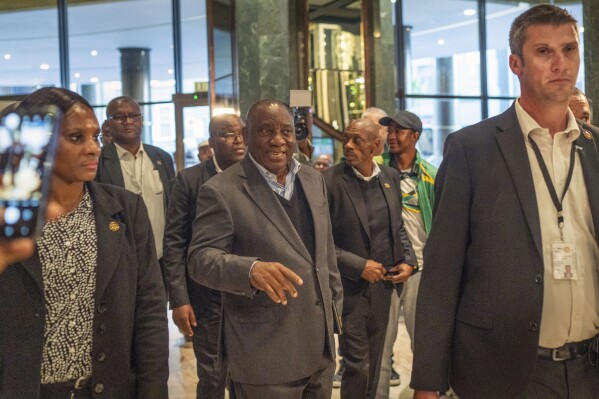South Africa has witnessed a momentous political shift as the African National Congress (ANC) and its largest rival, the white-led, pro-business Democratic Alliance (DA), agreed on Friday to work together in a new government of national unity. This unprecedented move marks a significant change after 30 years of ANC majority rule, following the party’s loss of its majority in the May 29 elections.

DA leader John Steenhuisen hailed the agreement as a step towards a better South Africa, stating, “Today, South Africa is a better country than it was yesterday. For the first time since 1994, we’ve embarked on a peaceful and democratic transfer of power to a new government that will be different from the previous one.”
Steenhuisen emphasized that the DA would co-govern the Republic of South Africa in a spirit of unity and collaboration, describing multi-party government as the “new normal.” The DA’s entry into national government is a significant moment for a country still grappling with the legacy of the racist colonial and apartheid regimes, as the party has long struggled to shake off its image as a defender of rich white people’s interests.
Two smaller parties, the socially conservative Inkatha Freedom Party (IFP) and the right-wing Patriotic Alliance (PA), will also participate in the unity government. Sihle Zikalala, a member of the ANC’s governing body, celebrated the agreement on X (formerly Twitter), stating, “Today marks the beginning of a new era where we put our differences aside and unite for the betterment of all South Africans.”

As the newly elected National Assembly convened in a Cape Town convention centre, lawmakers were sworn in, and the chamber was set to elect its speaker, deputy speaker, and the country’s president. President Cyril Ramaphosa, the 71-year-old ANC leader, is expected to win a new term in office with support from the other parties in the unity government pact. The DA is set to receive the post of deputy speaker of the National Assembly as part of the deal.
Investors have welcomed the prospect of a coalition involving the ANC and DA, anticipating policy continuity and an acceleration of reforms. The exclusion of the populist uMkhonto we Sizwe (MK) party, led by former President Jacob Zuma, and the hard-left Economic Freedom Fighters (EFF) from policymaking is also seen as a positive, given their radical agendas, which include rapid land redistribution, widespread nationalizations, and increased welfare support.
A draft statement of intent circulated among party negotiators outlined a “basic minimum programme of priorities,” including rapid, inclusive, and sustainable economic growth, the promotion of fixed capital investment and industrialization, job creation, land reform, infrastructure development, structural reforms, and fiscal sustainability.
As South Africa embarks on this new era of multi-party governance, the country faces the challenge of addressing persistent issues of poverty, inequality, crime, and corruption while navigating the complex legacy of its past. The historic partnership between the ANC and DA represents a significant step towards a more inclusive and collaborative political landscape, with the potential to shape a brighter future for all South Africans.



